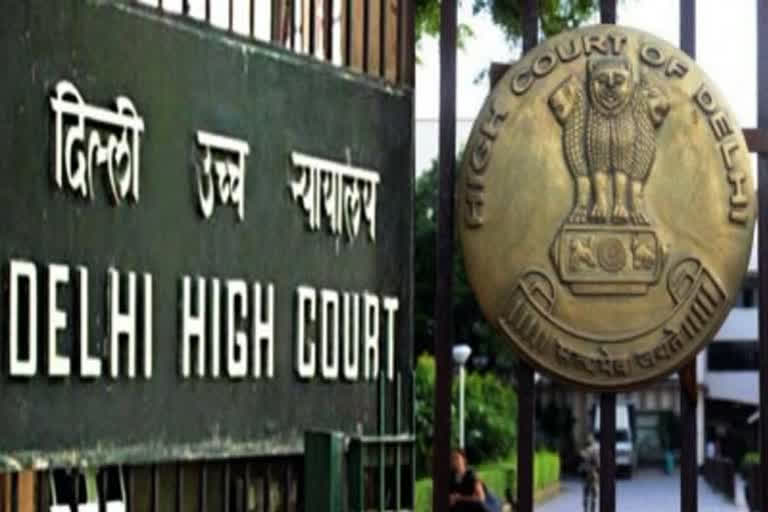New Delhi:The Central government sought time from the Delhi High Court on Monday to frame its stand on the issue relating to the criminalisation of marital rape. Solicitor General Tushar Mehta, representing the Centre, urged a division bench comprising justices Rajiv Shakdher and C Hari Shankar, to grant some more time to formulate its stand on the issue.
Justice Rajiv Shakdher, who is heading the bench dealing with a batch of petitions challenging the legality of the marital rape exception in the Indian Penal Code (IPC), said that the Centre has to say yes or no as in issues such as the present one, deliberation does not end.
In a matter like this, they (Centre) have to in principle say yes or no because if they don't, however much they may deliberate, it is not going to come to an end, the judge said.
While Mehta said that considering the fact that it is a 2015 matter, the government needs a reasonable time as this is a matter which might need consultation. SG Mehta also said that nothing imminent is going to happen in the coming weeks. However, Justice Shakdher clarified that once the bench has started hearing the matter it would conclude it.
Mehta insisted on a couple of weeks' time saying that it would not make a difference. Justice Shakdher said that the court would consider his request after the amicus curiae and other counsel finish their submissions. Currently, senior advocate Rajshekhar Rao, who is Amicus Curiae in the matter is assisting Court on the issues.
A Senior advocate Rajshekhar Rao, who is assisting the court as an amicus curiae, submitted that there was no reason to preserve the marital rape exception. The amicus argued that a married cannot be denied the right to prosecute her husband if she believed that she was raped and in case of denial of a conjugal relationship, the remedy before the spouse is to file a plea for restitution and not force himself upon her.
He had earlier said that the foundation of section 375 (rape) of the IPC was the lack of consent and there was no reason to give lessor protection against non-consensual intercourse to a married woman.
He had thus argued that the marital rape exception in law was arbitrary and violated Article 14 and Article 21 of the Constitution.
The central government, in its earlier affidavit filed in the case, has said that marital rape cannot be made a criminal offence as it could become a phenomenon that may destabilise the institution of marriage and an easy tool for harassing the husbands. The Delhi government has told the court that marital rape was already covered as a "crime of cruelty" under IPC.
The bench is hearing PILs filed by NGOs RIT Foundation, All India Democratic Women's Association, a man and a woman seeking striking down of the exception granted to husbands under the Indian rape law.
The petitioners have challenged the constitutionality of the marital rape exception under section 375 IPC on the ground that it discriminated against married women who are sexually assaulted by their husbands. The hearing in the case will continue on January 18.
Also read:"Should the court sit back and look at a woman being dehumanized:" Amicus to Delhi HC on marital rape
